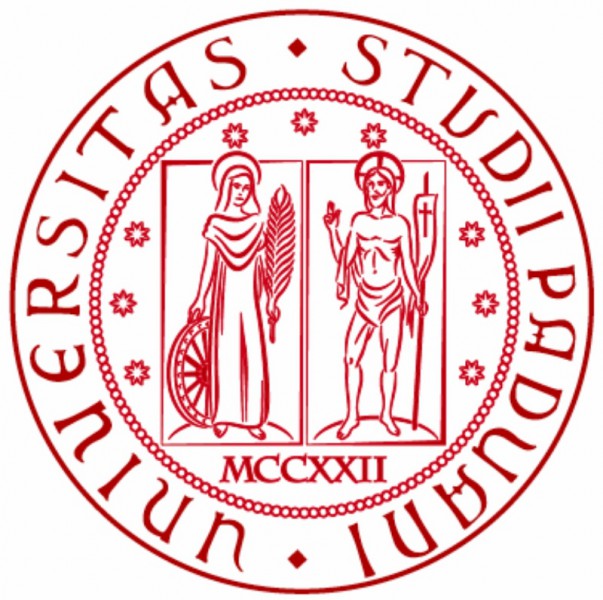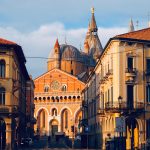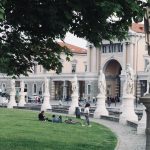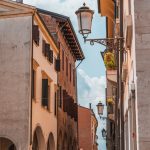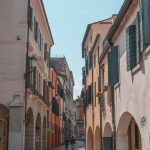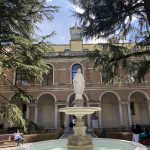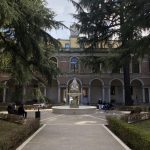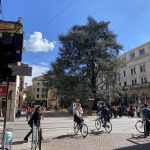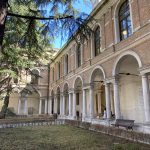Studying at the University of Padova is a truly unique experience that can shape the future of any student who decides to pursue their higher education in this historic institution. As one of the oldest and most prestigious universities in Italy, the University of Padova has a long-standing reputation for academic excellence and innovation. Founded in 1222, the university has been attracting students from all over the world for centuries, offering a wide range of courses and programs that cater to different academic interests and career aspirations.
In this article, we will be exploring what it’s like to study at the University of Padova based on the experiences of different students who have attended the institution. We will be looking at different aspects of the university experience, including the real-life and clinical experiences, exam formats, and course content. Our goal is to provide an in-depth look at what studying at the University of Padova is really like and to offer insights into the benefits and challenges of pursuing higher education in this renowned institution.
Whether you’re a prospective student who is considering applying to the University of Padova, or a current student who wants to learn more about the university’s academic programs and student life, this article will give you a comprehensive overview of what to expect when studying at this prestigious institution. So, let’s dive in and explore the world of learning at the University of Padova!
Content Quick Navigation
Padova IMAT Minimum Scores
| Year | Minimum Score (Non-European) | European Scores (First/Last Round) |
|---|---|---|
| 2020 | 27.5 | First: 55 / Last: 45.1 |
| 2021 | 46.6 | First: 47 / Last: 37.5 |
| 2022 | 52.6 | First: 47.1 / Last: 37.9 |
| 2023 | 49.5 | First: 41.1 / Last: 38.7 |
Time Table and Course Structure
The Medicine program at the University of Padova follows a structured and well-planned curriculum that is designed to provide students with a comprehensive understanding of the medical field. The program is divided into different modules, each focusing on a specific area of medicine. Students are required to complete a certain number of credits in each module in order to progress to the next level.
One of the unique aspects of the Medicine program at the University of Padova is its light schedule. Classes typically run for about four hours a day, starting at 8 AM. This makes it an ideal choice for students who prefer to study at home for the rest of the day. The syllabus for the Medicine program is also similar to that of the University of Pavia, with a focus on both theoretical and practical learning.
In addition to attending classes, students in the Medicine program at the University of Padova are required to complete clinical rotations in hospitals and other healthcare settings. These rotations provide students with the opportunity to gain real-life experience in the medical field and apply their knowledge in a practical setting.
Overall, the time table and course structure of the Medicine program at the University of Padova are designed to provide students with a well-rounded education in medicine, while also allowing them to pursue their academic interests and personal goals outside of the classroom.
The History of The University of Padua
The University of Padua was founded in 1222 as a body of free scholars who elected their teachers and defended freedom of thought in study and teaching. In the 16th and 17th centuries, Padua became a hub of scientific and cultural innovation, with figures such as Andrea Vesalio, Copernicus, and Galileo making significant contributions. The university boasts the world’s first botanical garden and permanent anatomical theater, as well as producing William Harvey, who described the circulation of blood, and Elena Lucrezia Cornaro Piscopia, the world’s first female university graduate.
The university experienced a dark period under French and Austrian rule, and fascism curtailed its values of free thought and cultural independence. However, during the German occupation, Rector Concetto Marchesi rallied students to fight for Italy’s freedom, and the university was awarded a gold medal for military valor. In the post-war period, the university expanded to include new faculties such as Education, Agricultural Sciences, Psychology, Veterinary Medicine, and Economics and Business Administration.
In the 20th century, the university produced literary figures, engineers, mathematicians, jurists, philosophers, and doctors, including Vincenzo Gallucci, who carried out the first heart transplant in Italy. The new millennium has seen significant advancements in medicine, biomedicine, engineering, and aerospace technology.
How do exams work in Padova?
The exam system at the University of Padova is different from that of many other universities in Italy. Unlike other universities, Padova offers written exams, rather than oral exams. Most of the exams in the Medicine program at Padova are multiple choice, which means that if you study well, you can pass them quite easily. This is a relief for many students who find oral exams to be stressful and anxiety-inducing.
The multiple-choice format of exams also has its advantages. It allows students to demonstrate their knowledge and understanding of the subject matter in a more objective and standardized way. Moreover, it also allows for faster grading and turnaround times, which means that students can receive their exam results and feedback more quickly.
While most of the exams in the Medicine program at Padova are multiple choice, there are also some open-ended exams that require more in-depth and analytical thinking. These exams may be more challenging, but they also offer students the opportunity to showcase their critical thinking and problem-solving skills.
Overall, the exam system at the University of Padova is designed to provide students with a fair and objective way to demonstrate their knowledge and understanding of the material covered in the Medicine program. The multiple-choice format of exams allows for a more efficient and standardized grading process, while also providing students with the opportunity to excel in their studies through open-ended exams that require critical thinking and analysis.
The Weather in Padova and Student Life
Padova enjoys a mild climate with four distinct seasons, making it a pleasant place to live and study for students from all over the world. Summers are warm and sunny, with temperatures ranging from 25°C to 30°C, while winters are relatively mild, with temperatures averaging around 5°C to 10°C.
The climate in Padova allows students to enjoy a range of outdoor activities throughout the year, from exploring the city’s historic streets and landmarks to hiking and cycling in the nearby countryside. The city is also home to many parks and green spaces, such as the beautiful Orto Botanico di Padova, which is one of the oldest botanical gardens in the world.
In addition to the pleasant climate and outdoor activities, Padova has a vibrant student life with many students and places to meet other students at the center. However, it is important to note that many events and activities may be conducted in Italian, so it is important for international students to learn Italian before arriving in Padova. While this may seem challenging, learning Italian can greatly enhance the overall university experience, allowing students to fully immerse themselves in the culture and community of Padova.
The city is home to many museums, theaters, and art galleries, which provide students with ample opportunities to explore the rich history and culture of the region. The university also hosts a range of events and activities, such as sports competitions, concerts, and social gatherings, which allow students to meet and interact with other students from all over the world.
Overall, the weather in Padova and the vibrant student life make it an excellent place to live and study for students who are looking for a well-rounded and fulfilling university experience. However, it is important to be prepared to learn Italian in order to fully enjoy all that the city and university have to offer.
Tuition Fees and Scholarships
Studying medicine in Italy is a big opportunity for many people who are looking for an affordable and sustainable way to pursue their dreams of becoming a doctor. The University of Padova is no exception, offering a range of tuition fee discounts and scholarships to help students achieve their academic goals.
The cost of tuition for the Medicine program at the University of Padova is around 2000 euros per year. However, this fee may vary depending on the student’s ISEE number, which is a measure of their economic situation. Students with a lower ISEE number may be eligible for a full tuition fee discount, which can greatly reduce the financial burden of studying at the university.
In addition to tuition fee discounts, the University of Padova also offers a range of scholarships and grants to support students in their academic pursuits. These scholarships can provide students with financial assistance for various expenses, such as books, equipment, and living expenses. Some students may also be eligible for free cafeteria food or dorms, which can further reduce their overall cost of living while studying at the university.
Overall, the University of Padova is committed to providing students with the resources and support they need to succeed in their academic endeavors. Through its tuition fee discounts, scholarships, and other forms of financial assistance, the university ensures that students from all backgrounds have the opportunity to pursue their dreams of becoming doctors without breaking the bank.
The cost of living and studying at the University of Padova is relatively affordable compared to other cities in Italy and Europe. While the cost of living may vary depending on the student’s lifestyle and spending habits, the overall cost of living is still considered to be quite reasonable.
One of the main expenses students must consider when studying at the University of Padova is accommodation. The cost of rent in Padova varies depending on the location and type of accommodation, with shared apartments and dorms being more affordable options compared to private apartments.
Food and dining costs are also reasonable in Padova, with many affordable cafes, restaurants, and markets available for students to choose from. The university also provides free or subsidized cafeteria food for eligible students, which can greatly reduce their overall food expenses.
Transportation costs are also relatively low in Padova, with many students opting to use bicycles or public transportation to get around the city. The city is also quite walkable, with many of the university’s facilities and amenities located within walking distance of each other.
Overall, the cost of living and studying at the University of Padova is relatively affordable compared to other cities in Italy and Europe. With reasonable accommodation costs, affordable food and dining options, and low transportation costs, students can focus on their studies without worrying too much about their finances.
| Living Expense | Estimated Cost (EUR) |
| Tuition fees (depending on ISEE) | 156-4500 |
| Rent (with roommates) | 350 |
| Rent (living alone) | 600 |
| Food | 150-200 meat-based, 100-150 If it’s mostly vegetable based. Halal food can be a bit more expensive. |
| Drinks (Shot) | 1 |
| Drinks (Beer) | 3.5-5 |
| Pizza | 5-7 |
| Bus Subscription | 25 |
| Yearly Gym Membership | 350-400 |
| Coffee | 1-2 |
| Lunch at a café | 5-10 |
| Dinner at a mid-range restaurant | 15-25 |
| Monthly utilities (electricity, water, gas) | 80-120, water is usually free in buildings, sometimes gas for heating is subsidized as well. |
| Internet (per month) | 20-30 (Don’t use Vodafone) |
| Mobile phone plan (per month) | 10-20 for a basic plan |
| Haircut (men) | 15-22 |
| Haircut (women) | 30-40 |
| Dry cleaning (shirt) | 2-3 |
| Dry cleaning (suit) | 10-15 |
| Movie ticket (weekday) | 6-8 |
| Movie ticket (weekend) | 8-10 |
| Museum entrance fee | 5-10 (In Milan) |
| Theatre ticket | 15-30 (In Milan) |
| Books (per semester) | 150-200, 50-100 used from upper years |
| Stationery (per semester) | 20-30 |
| Winter coat | 50-100 |
| Umbrella | 5-10 |
| Backpack | 30-50 |
| Running shoes | 60-100 (Or 12 at Decathlon) |
| Public transportation ticket (one way) | 1-2 |
| Taxi (per km) | 1.20-1.50 |
| Gasoline (per liter) | 1.90-2.00 |
Summary
Studying Medicine at the University of Padova is a unique and rewarding experience for students looking to pursue a career in the medical field. The university’s Medicine program is renowned for its rigorous curriculum, real-life experiences, and multiple-choice exam system, allowing students to demonstrate their knowledge and understanding of the subject matter more objectively and standardized way. In addition, the university offers a range of tuition fee discounts, scholarships, and other forms of financial assistance to support students in their academic pursuits. The cost of living and studying in Padova is also considered to be relatively affordable, with reasonable accommodation costs, affordable food and dining options, and low transportation costs.

